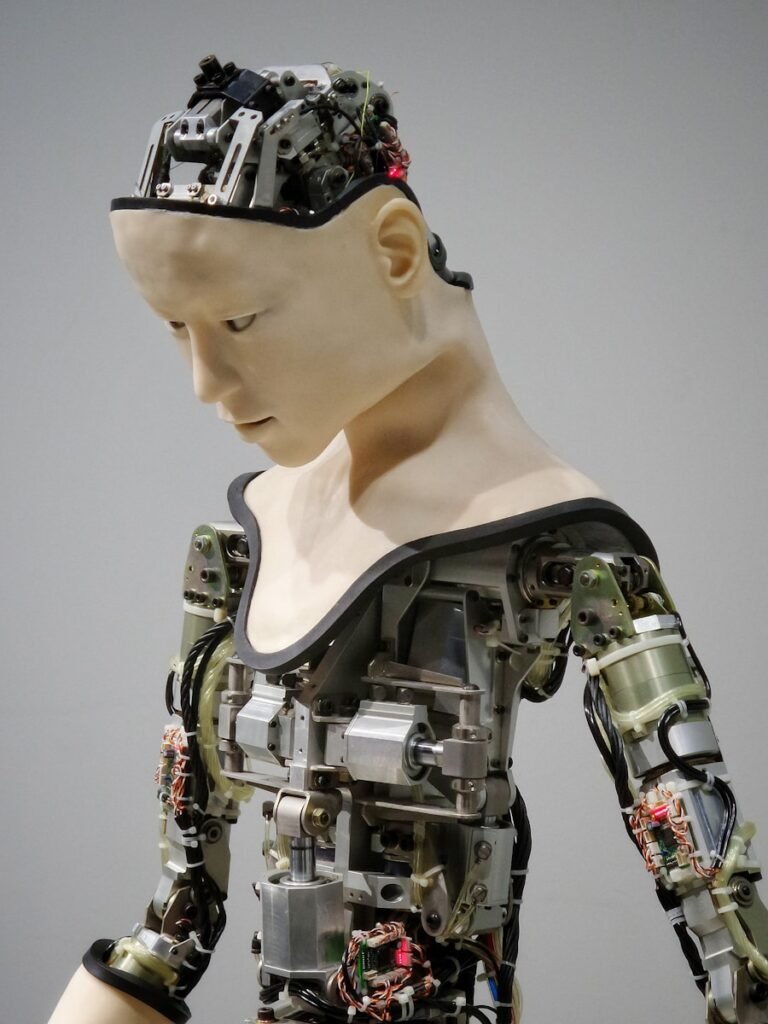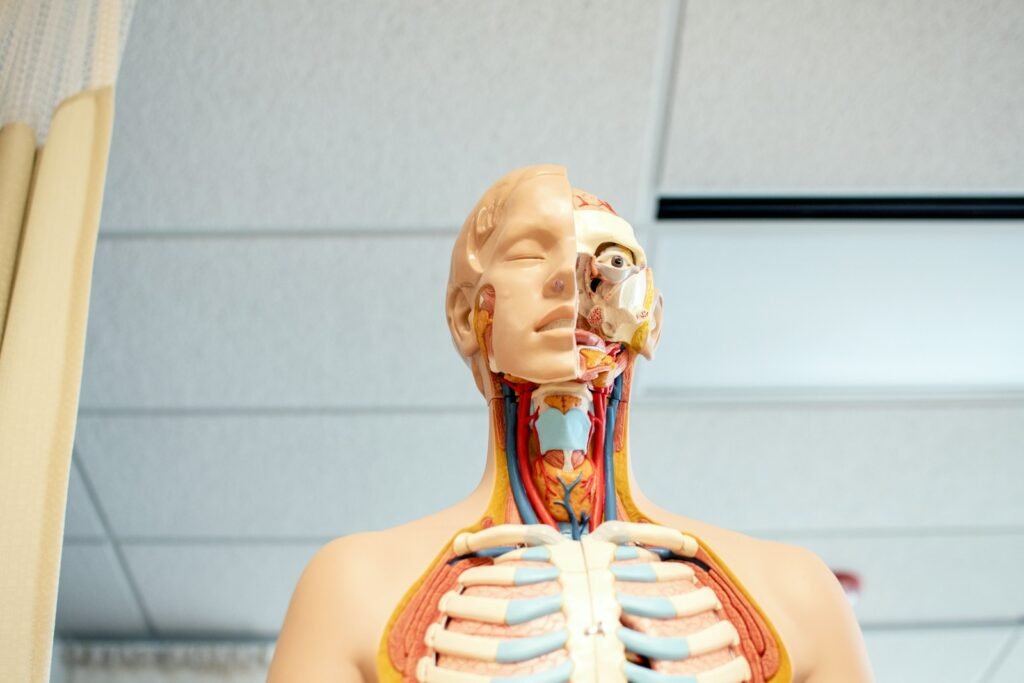
AI in Space Exploration: Revolutionizing Mission Planning
Mission planning in the realm of space exploration has always been a labyrinthine enigma, shrouded in a veil of countless variables and complexities. But fear not, for artificial intelligence has descended upon us as the ultimate companion in our cosmic quest. AI has completely transformed the landscape of mission planning, devouring data at an unprecedented pace akin to a shooting star and foreseeing outcomes with celestial precision.
In the words of Sam Altman, “AI is akin to the new electricity.” Just as electricity revolutionized numerous industries in its wake, AI is set to do just the same for space exploration. Picture having an intangible co-pilot tirelessly dissecting spacecraft trajectories, plotting optimal paths through the vast unknown, and even predicting potential threats lurking within the abyssal depths of space.
The unparalleled ability of AI to sift through colossal amounts of information at quantum speeds has catapulted mission planning into a realm of efficiency never before seen. As we navigate through the infinite cosmos, AI stands as our guiding light – illuminating our path forward and aiding us in pushing boundaries that were once thought insurmountable in our pursuit of discovery beyond earthly confines.
AI’s Application in Discovering Exoplanets
Envision gazing into the endless void of space and stumbling upon a planet in a galaxy far beyond our own- a world so remote yet so captivating. Through the power of artificial intelligence (AI), this futuristic scenario has transcended mere imagination to become a palpable reality. The utilization of AI in the quest for exoplanets has completely transformed our comprehension of the universe, enabling us to identify these extraterrestrial realms with unprecedented efficiency and precision.
By delving into colossal volumes of data gathered by instruments such as NASA’s Kepler mission, AI algorithms are able to zero in on subtle signals that hint at the existence of exoplanets. As astronomer Natalie Batalha eloquently put it, “AI is akin to having a million interns scrutinizing data simultaneously, but minus the need for coffee breaks!” This clever comparison encapsulates the essence of AI’s contribution to exoplanet discovery- it expedites the process of exploration by rapidly analyzing extensive datasets that would require human researchers years to decipher. Thus, when you peer up at the starlit sky next time, bear in mind that AI is not solely aiding us in unraveling the enigmas of distant worlds but also propelling our cosmic curiosity towards uncharted territories.
Enhancing Data Analysis with Artificial Intelligence
Picture yourself lost in a sea of data gathered from countless space missions – it’s akin to hunting for a needle in a haystack while suspended in zero gravity. Enter artificial intelligence (AI) as the cosmic savior, armed with algorithms sharper than a laser beam, poised to revolutionize data analysis and bring order to the celestial pandemonium.
With AI at our fingertips, we can now blitz through astronomical data at lightning speed, unveiling enigmatic patterns and revelations that would have stumped human minds for centuries. As Albert Einstein once mused, “The important thing is not to stop questioning. Curiosity has its own reason for existing.” And AI ignites our curiosity by untangling the universe’s enigmas hidden within the data, guiding us towards fresh discoveries and enlightenment like a digital compass navigating the boundless cosmos.
AI-Powered Telescopes: A Look into the Future
Oh, the sheer wonder of AI-infused telescopes – peering into the boundless expanse with the aid of our silicon-based allies! Envision this: a telescope that not only gazes upon celestial entities but also dissects and deciphers the information at breakneck speed. It’s akin to having a astrophysicist on hyper-speed, digesting data faster than you can utter “nebula.”
Through the incorporation of artificial intelligence, these telescopes are transcending their mere tool status; they are metamorphosing into sentient companions in our pursuit of cosmic comprehension. As Elon Musk once mused, “I believe we stand on the cusp of a new era in commercial space exploration,” and AI-driven telescopes stand at the vanguard of this technological rebirth. Consider the potential for unveiling celestial wonders that were previously shrouded in deep space, all thanks to the keen eyes and swift intellects of AI algorithms.
Autonomous Rovers: AI’s Role in Planetary Exploration
Envision dispatching a rover to a distant planet millions of miles away, then unleashing it to wander freely, delving into the enigmatic terrain on its own. Sounds straight out of a sci-fi flick, doesn’t it? Yet, thanks to AI, this futuristic concept has become a tangible reality in the realm of planetary exploration.
Picture this: a rover traversing the rugged Martian expanse with the finesse of an experienced voyager. Empowered by artificial intelligence, these rovers possess the capacity to make split-second decisions on-the-go, adapting to unforeseen obstacles and selecting the optimal path towards their objective. As famously articulated by Elon Musk, “AI poses a fundamental threat to human civilization in a manner that car accidents or plane crashes were not – they may have harmed specific individuals within society but did not pose harm to society as a whole.” AI-driven rovers are heralding in a new epoch of planetary investigation, shattering preconceived notions about what was once deemed feasible.
The fusion of AI and autonomous rovers is reshaping how we scrutinize other planets. By swiftly analyzing copious amounts of data in real-time, these rovers have the capability to unveil hidden insights into cosmic enigmas. As we venture deeper into outer space, AI’s role in planetary exploration will only continue expanding horizons; unlocking avenues for fresh revelations and pushing boundaries beyond our comprehension of the cosmos.
AI’s Contribution to Understanding Black Holes
Mysterious and beguiling, black holes captivate the minds of astronomers and scientists with their insatiable appetite for devouring all that crosses their path. The emergence of artificial intelligence has propelled our comprehension of these enigmatic phenomena to unprecedented heights. Through the lens of AI, we witness the intricate interplay of matter swirling around black holes, unraveling secrets once veiled in obscurity. In the words of astrophysicist Andrea Ghez, AI bestows upon us a novel perspective, allowing us to gaze upon the unseen and venture into uncharted territories within the cosmos.
By harnessing AI algorithms fueled by copious data from telescopes and simulations, researchers now possess a tool capable of modeling black hole behaviors with unparalleled precision. From forecasting gravitational wave patterns to simulating accretion disk dynamics, AI stands as an indispensable ally in demystifying these cosmic riddles. Echoing physicist Stephen Hawking’s contemplation that ignorance is not knowledge’s adversary but rather the illusion thereof; With AI guiding our expedition through realms once obscured by misconception, we shatter these illusions and expose profound truths concealed within the heart of darkness.
Predicting Solar Flares with Machine Learning
Venturing through the chaotic cosmos has always been an exhilarating rollercoaster, with surprises at every turn. But isn’t that where the thrill truly lies? Picture attempting to anticipate when the sun will unleash its cosmic fury in the form of solar flares it’s like trying to guess when your friend will finish their coffee, a complete shot in the dark. However, fret not, fellow space aficionados, as our AI companions have stepped up to tackle this perplexing celestial enigma.
Through the utilization of machine learning, scientists are delving deep into the untamed side of our sun, scrutinizing data to predict these solar outbursts with remarkable precision. It’s akin to playing a game of cosmic meteorologist; instead of forecasting rain or sunshine, we’re predicting fiery explosions from our beloved star. As we unearth more about the enigmatic behavior of the sun, AI is showcasing itself as our reliable partner in deciphering its secrets regarding solar flares. And who could resist unraveling captivating mysteries?
So next time you gaze skyward at the sun (ensuring you have appropriate protective gear), take a moment to marvel at how AI is weaving its enchantment within the vast expanses of our universe. In wise words once spoken by Sam Altman: “AI will assist us in accomplishing tasks that we currently struggle with and lead us towards creating a significantly improved world.” Undoubtedly, it is within these cosmic collaborations between humanity and technology that we edge closer towards comprehending the infinite wonders present within space.
AI’s Impact on Space Debris Monitoring
The vast expanse of space is filled with a perplexing array of discarded satellites and defunct rocket parts, known collectively as space debris. This cosmic clutter poses a formidable threat to our missions beyond Earth’s atmosphere. But fear not, for Artificial Intelligence has emerged as our valiant ally in the battle against orbital junk. With its lightning-fast algorithms and sharp vision, AI is revolutionizing the way we detect and mitigate the risks posed by these floating hazards.
Picture a scenario where AI-driven sensors scan the heavens, meticulously tracking each fragment of debris with unparalleled precision. As the illustrious physicist Michio Kaku so eloquently phrases it, “AI empowers us to wield god-like control over the trajectories of planets and stars.” Thanks to AI’s intervention, we are able to anticipate potential collisions, redirect spacecrafts on alternate paths, and safeguard our celestial endeavors. It’s akin to having a divine protector overseeing our missions amidst the tumultuous cosmic landscape. With AI vigilantly monitoring the cosmic chaos, we can navigate through space with unwavering confidence and exactitude.

